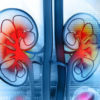What Is Urology?
Urology is the study and treatment of diseases pertaining to and affected by the urinary tract, which includes the kidneys, uterus, bladder, and urethra, in both men and women. This specialty also includes the male organs related to reproduction, including the penis, testes, scrotum, prostate, epididymis, vas deferens, and seminal vesicles.
Expertise in urology also requires knowledge of other bodily systems and medical specialties, such as, gynecology, and gastroenterology. To organize the profession further, the American Urological Association recognizes seven subfields of urology:
- Male infertility
- Renal transplants
- Urologic oncology
- Kidney and urinary tract stones
- Female urology
- Neuro-urology
In addition, urologists have extensive knowledge of the adrenal glands, which are located in the kidneys. Because the urological system and reproductive systems of both males and females are so closely interlinked, an evolving branch of genitourinary medicine studies the intersection of these organs.
What Can Urologists Diagnose?
Urologists treat an array of acute and chronic conditions and illnesses. These ailments include:
Urinary Tract Infections (UTI)
A urologist can more conclusively diagnose a urinary tract infection (UTI) through a urinalysis where blood or white blood cells may be present. A computerized tomography (CT) scan or ultrasound may also be necessary for diagnosis. Treatment is generally complete after three days of antibiotics though sometimes the course of antibiotics may take up to two weeks.
Kidney Stones
Kidney stones are minute deposits of calcium or other trace minerals in the body that combine with salts. As kidney stones grow, they may stay in the kidneys or pass into the ureter, which can cause significant discomfort. They are diagnosed via ultrasound or CT scans. Treatment can include waiting for the stone to exit the body on its own or with medication. Several types of surgeries, from non-invasive to mildly invasive can also be used to treat kidney stones.
Urinary Incontinence
Incontinence occurs when a person involuntarily leaks urine. A urologist can help a patient understand the cause of urinary incontinence, which may be due to age, muscle weakness, or stress. Treatments include pelvic muscle exercises, medications, lifestyle changes, biofeedback sensors that can increase muscle control, or surgery as a last resort.
Enlarged Prostate
An enlarged prostate or benign prostatic hyperplasia (BPH) is when the prostate and nearby tissue swell, which can cause discomfort, weaken the bladder, and lead to UTIs. It can be diagnosed by examining symptoms of BPH that include a frequent or urgent need to urinate, or difficulty urinating, among others. It can be diagnosed using several different types of tests or scans.
Pelvic Organ Prolapse
Pelvic organ prolapse is when a pelvic organ slips into the vagina. Its symptoms include a feeling of heaviness around the lower abdomen and discomfort during intercourse. Pelvic prolapse isn’t life-threatening but can be uncomfortable. A urologist at Bergen Medical Associates may recommend treatments including exercises, hormonal therapy, surgery, or a combination of such remedies.
Urologists are also trained to treat other urological maladies such as congenital urinary tract issues, cancers of the bladder, kidneys, and prostate, erectile dysfunction, and many others.
When Should You See Your Urologist?
A primary care physician can diagnose and treat routine problems such as a UTI. However, patients experiencing the following issues may need to see their urologist:
- Blood in the urine
- Pain during urination
- Difficulty with bladder control
- Pelvic pain
- Erectile dysfunction
- Testicular pain
Urologists can perform diagnostic tests to identify the underlying causes of these symptoms.
Find Outstanding Care at Bergen Medical Associates Today
For over two decades, Bergen Medical Associates has been serving patients at convenient locations throughout northern New Jersey and the surrounding area. The urology team at Bergen Medical Associates is led by Richard Garden, MD. Patients receive individualized and compassionate care and benefit from our state-of-the-art diagnostic technology. For more information about urology care at Bergen Medical Associates, request an appointment today or contact us for more information.










